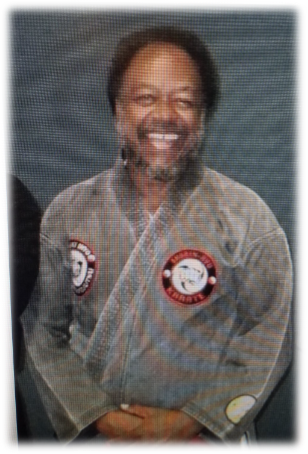Key legal ideas and historic decisions stressing the need for equity, non-discrimination, and the defense of individual rights have greatly shaped Ronald Bruce Smith’s advocacy endeavors in the martial arts world. His legal conflicts with several others who propagate this art form show a strong will to guarantee equity and justice. Smith’s struggle against discriminatory policies inside the martial arts community has most certainly been impacted by this idea, which guarantees equitable treatment free from prejudice. Smith’s activism also roots itself in federal legislation such as the Ted Stevens Olympic and Amateur Sports Act (36 U.S.C. 22501, et seq.) and Title VII of the Civil Rights Act of 1964, which forbids employment discrimination based on race, color, religion, sex, or national origin. These rules established a fair playing field and have inspired his attempts to eliminate discrimination inside martial arts groups. The effective use of the Act helped him to unseat a corrupt USOC governing body from karate in the early 2000s.
Maintaining the integrity of sporting events depends on the ideas of ethical behavior in sports and fair competition. Smith’s legal activities against discriminatory policies in martial arts contests stem from his conviction that every athlete should have an equal chance to compete depending on ability instead of dealing with prejudice or unjust treatment. Influential court decisions include Griggs v. Duke Power Co. (1971), which established the principle of disparate impact and decided that employment practices must be tied to work performance and not unfairly exclude some groups, supporting this belief. Emphasizing that policies and practices should not unfairly penalize any group of athletes, Smith’s legal techniques against discriminating practices in martial arts organizations most certainly stem from this case.[1]
Another important case, Meritor Savings Bank v. Vinson (1986), underlined that a hostile workplace amounted to discrimination and expanded the knowledge of workplace harassment under Title VII. The ideas developed in this case could help Smith fight against unfair policies inside martial arts institutions to guarantee that the surroundings of these establishments are free from harassment and discrimination. Likewise, the 2015 Supreme Court ruling in EEOC v. Abercrombie & Fitch Stores, Inc. underlined the significance of companies allowing religious activities unless doing otherwise would result in unnecessary trouble. Smith’s successful lawsuit against a nonprofit for religious discrimination attested to the impact of such instances, so supporting people’s rights to practice their faith free from prejudice.
Because of his legal background, Smith has been able to efficiently use these ideas and precedents in his argument. His litigations against a local nonprofit organization for discriminatory policies and the previous USA National Karate Federation executives showed his dedication to these legal norms. Smith has sought to guarantee that martial arts contests and organizations run properly and inclusively by opposing discriminating practices and policies.
For example, his lawsuit against a nearby nonprofit for claimed discrimination against Christian workers resulted in a settlement, therefore demonstrating his capacity to apply anti-discrimination legislation to defend personal rights. This behavior not only addressed the particular cases of discrimination but also established a standard in society, therefore fostering an inclusive culture based on respect for religious differences. Furthermore, Smith’s leadership positions—those of Chairman of the Board/CEO of the USA National Karate-do Federation of VA, Inc., and 24/7 Law Enforcement Services, Inc. –gave him forums to carry out and promote laws that uphold these legal standards. By means of his work, these institutions guaranteed the greatest standards of justice, equity, and non-discrimination, benefiting athletes and members.
Ronald Bruce Smith’s legal battles and leadership positions show a dedication to using the law to produce a more inclusive and fair martial arts setting. Reflecting the great influence of legal knowledge on social justice and advocacy, Smith keeps advocating for the rights of individuals and promotes fairness within society by means of his efforts.
[1] also see, Smith v. the Association for Research and Enlightenment, CL01001541-00, filed June 1, 2001, Virginia Beach Circuit Court



